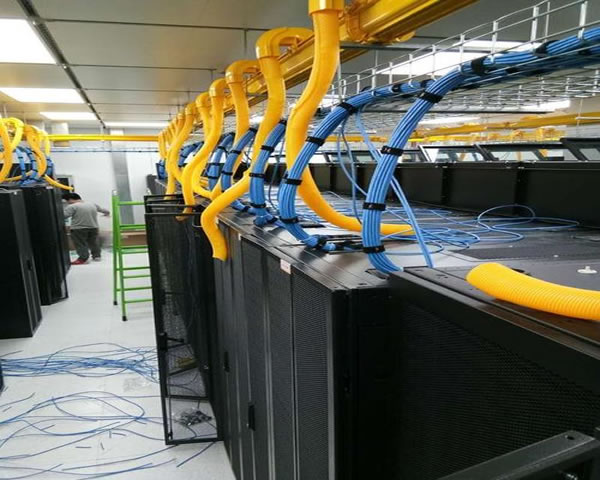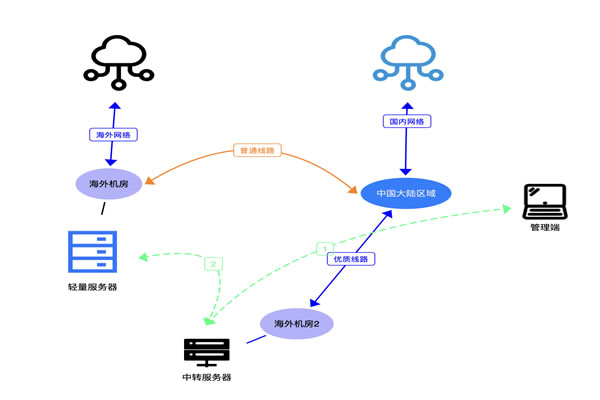Current Location: Blog >
Malaysian VPS

1. what is a cloud server
a cloud server is a service that integrates multiple physical server resources through virtualization technology. users can dynamically adjust resources as needed and flexibly respond to business needs. compared with traditional physical servers, cloud servers provide greater flexibility and scalability.the main features of cloud servers include:
- pay on demand: users only need to pay for the actual resources used.
- elastic scaling: computing resources can be increased or decreased at any time.
- high availability: cloud servers usually have multiple backups to ensure data security and reliability.
- convenient management: through the management panel, users can easily manage and monitor server performance.
in malaysia, the penetration rate of cloud servers is increasing year by year, and a large number of enterprises have begun to adopt cloud technology to improve business efficiency.
2. why choose a malaysian cloud server
malaysia has several advantages that make it ideal for cloud servers:- excellent location: malaysia is located in the heart of southeast asia and is suitable for serving the entire asia-pacific region.
- network infrastructure: malaysia's internet infrastructure is becoming increasingly perfect, and most areas can enjoy high-speed network services.
- cost-effectiveness: compared with other countries, malaysia's cloud servers are relatively low-priced and suitable for small and medium-sized enterprises.
- policy support: the malaysian government actively promotes the development of the digital economy and provides a good policy environment for the cloud computing industry.
for example, a kuala lumpur-based e-commerce company chose to deploy cloud servers in malaysia, and successfully achieved rapid business expansion through the flexibility of the cloud platform.
3. how to choose the right cloud server configuration
when choosing a cloud server configuration, the following factors need to be considered:- processor (cpu) performance: select the cpu model and core number that suits business needs.
- memory (ram): determines the memory required by the application to avoid performance problems caused by insufficient memory.
- storage type: select ssd or hdd storage according to the data access frequency. ssds are faster but at a higher price.
- bandwidth: select the right bandwidth to ensure a smooth experience during access by users.
- backup and security: ensure cloud service providers provide reliable backup and security mechanisms.
the following is a sample configuration table to help users understand the performance comparison of different configurations:
| configuration items | basic type | standard type | high performance type |
|---|---|---|---|
| cpu | 1 core | 2 cores | 4 cores |
| memory | 1 gb | 4gb | 8 gb |
| storage | 20 gb hdd | 50 gb ssd | 100 gb ssd |
| bandwidth | 1 mbps | 5 mbps | 10 mbps |
4. how to manage and maintain cloud servers
managing and maintaining cloud servers is crucial, here are some best practices:- regular updates: make sure the operating system and applications are kept up to date and install security patches in a timely manner.
- data backup: regularly back up important data and use cloud backup services to ensure data security.
- monitoring performance: use monitoring tools to monitor server performance in real time to discover and solve problems in a timely manner.
- security settings: configure firewalls and intrusion detection systems to protect the server from attacks.
- cost optimization: regularly evaluate resource usage, avoid resource waste, and optimize costs.
for example, a company used cloud monitoring tools to find that the cpu utilization of its database server was too high, and it expanded resources in a timely manner to avoid service interruptions caused by performance bottlenecks.
5. choose the right cloud service provider
choosing a cloud service provider is an important step in using a cloud server. here are the factors to consider when choosing:- service quality: evaluate service reliability and technical support of service providers.
- performance testing: check out performance test reports from other users to understand the stability and speed of the service.
- transparent price: service providers should provide clear price models to avoid implicit charges.
- customer reviews: check user comments and feedback to understand the real experience of the service.
- contract terms: read the terms of the contract carefully to ensure there are no adverse restrictions.
in the malaysian market, some well-known cloud service providers such as aws, alibaba cloud and on-premises provider exabytes provide a variety of service options, and users can choose according to their needs.
6. common application scenarios of cloud servers
cloud servers can be widely used in multiple fields, and the following are some common scenarios:- website hosting: enterprises can use cloud servers to host websites for better access speed and stability.
- data storage: cloud servers provide enterprises with efficient and secure data storage solutions.
- online application: developers can deploy online applications on cloud servers for easy access to users.
- backup and recovery: enterprises can use cloud servers to back up data to ensure business continuity.
- big data analysis: cloud servers can be used to store and process big data to help enterprises perform data analysis.
for example, an online education platform has achieved smooth playback of course videos through a cloud server, and user satisfaction has been significantly improved.
7. future trends and summary
with the continuous advancement of technology, future trends of cloud servers include:- combination of artificial intelligence and cloud: more cloud services will integrate ai technology to improve the level of service intelligence.
- edge computing: with the increase of iot devices, edge computing will become an important supplement to cloud services.
- higher security: cloud service providers will continue to increase their investment in security technologies.
- multi-cloud strategy: more and more enterprises will adopt multi-cloud environments to optimize resource allocation.
- cost optimization technology: use intelligent scheduling and automated management to reduce cloud service costs.
in short, choosing the right cloud server and managing it reasonably is crucial for the digital transformation of the enterprise. hope the guides and tips in this article can help you and help your business grow.
- Latest articles
- Configuration And Player Experience Of South Korea's Valorant Server
- Application Of Vietnam Cn2 Server In International Business
- Detailed Tutorial To Easily Set Up A Malaysian Minecraft Server
- Explore Recommended Service Providers For Server Rental And Cloud Space In Taiwan
- How To Choose A Suitable Japanese Cloud Server Merchant
- Red Orchestra Vietnam Server Experience And Strategies
- How Long Does The Malaysia Vps Trial Last? User Feedback And Experience Sharing
- Best Practices For Combining Alibaba Cloud Japan Server With V2ray
- Comparative Analysis Of High-defense Hong Kong Server Rental To Choose The Best Solution
- Learn More About The Factors Affecting Cloud Server Prices In Malaysia
- Popular tags
Getting Started With VPS
Network Experience
Price
Practical Tips
Native Architecture
Reason For Selection
VPS
Writing
Value For Money
Network Speed
VPS Service
CN2GIA
Node
Server Management
No Traffic Limit
Recommendations For Construction
User Selection
Skin Price
Enterprise Server
Enterprise Solutions
Big Brother Cloud
Cheapest Cloud Server
Best Practices
Technical Performance
Renew
Video Loading
Market Competition
Trend
Popular
Network Connection
Related Articles
-
Market Prospects Of Overseas Cloud Servers In Malaysia
explore the market prospects of overseas cloud servers in malaysia, including market demand, major suppliers, user selection and their potential challenges. -
Current Status And Prospects Of The Cloud Server Market In Malaysia
this article analyzes the development status and prospects of malaysia's cloud server market, including market size, major players, technology development trends, etc. -
Features And Application Scenarios Of Malaysia Vps Native Ip
this article introduces in detail the characteristics and application scenarios of malaysian vps native ip, and provides practical operation guidelines.


